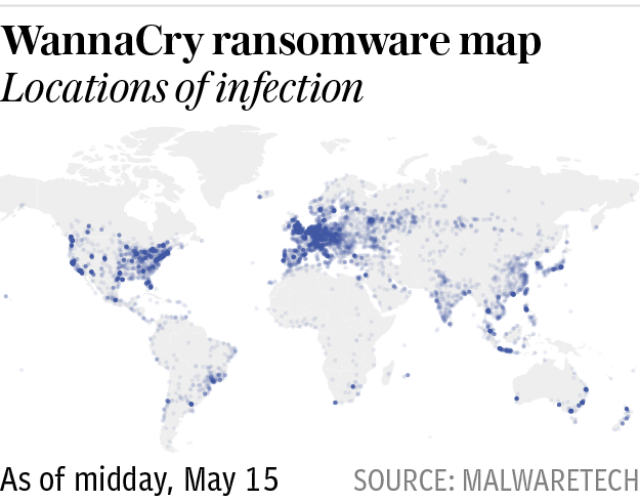Hundreds of speeding fines cancelled after worker accidentally infects cameras with WannaCry virus

Authorities in Australia have cancelled hundreds of speeding and traffic light fines after a maintenance worker accidentally infected roadside cameras with the WannaCry virus.
The state of Victoria’s police said they had cancelled 590 fines which were issued following offences picked up by 55 cameras.
The cameras were infected when a maintenance worker used a USB stick and accidentally uploaded the ransomware virus onto the traffic camera network.

Police last week noticed that the cameras were rebooting themselves more frequently than usual.
The state’s Acting Deputy Commissioner, Ross Guenther, said he believed the fines were correctly issued but had cancelled them to preserve confidence in the camera system.
“I cancelled the fines because I think it's important the public has one hundred per cent confidence in the system," Mr Guenther said.
"My advice is during the period the cameras were operating correctly and were not impacted by the virus. I'm confident in the advice I've been given that the fines would stand."

The alleged speeding and red-light camera offences occurred between June 6 and June 22.
However, cybersecurity experts said it was impossible for authorities to have complete confidence that the cameras were not affected.
Police said they were investigating the incident to determine whether the use of the USB stick breached protocols.
“I need to find out how the cameras got infected. I need to see if there is a corruption of data of if there is a long-term impact on the system,” the Traffic Camera Comissioner, Mr John Voyage, told AAP.
The WannaCry virus has struck organisations and networks in about 150 countries since it spread last month. It has affected Britain’s National Health Service, US shipping firm FedEx, Russia's postal service and Chinese government agencies.

 Yahoo News
Yahoo News 